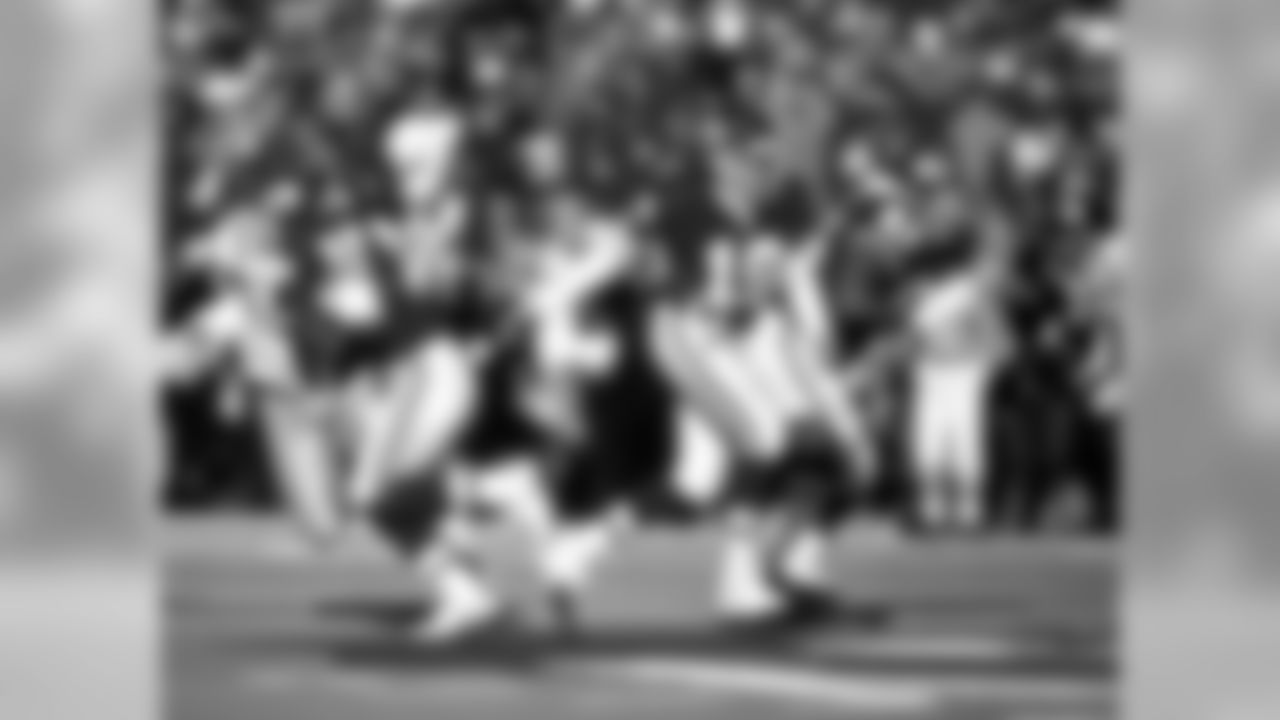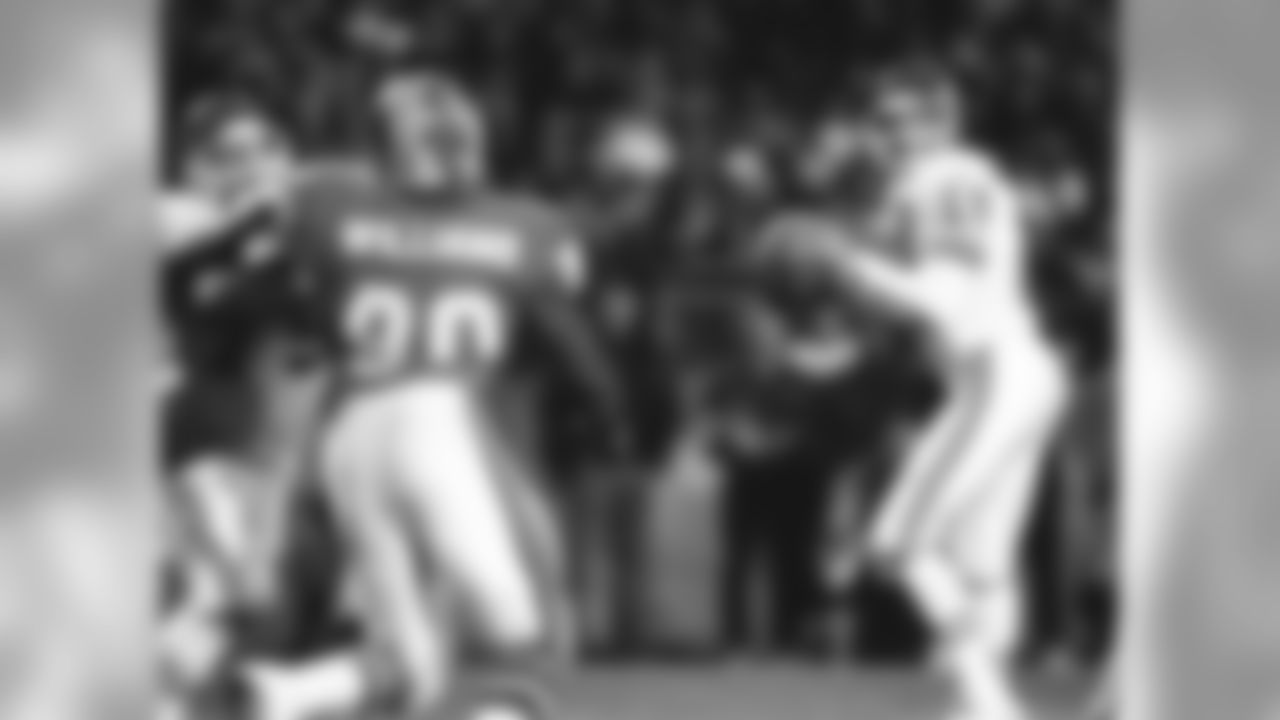Remembering the arrival of Joe Montana





























At a time when the general population continues to age well into its 80s, it is hard to believe that an athlete's elder years end sometime in the 30's – and then only if he's lucky.
Consider this recent passage from the *Wall Street Journal's *Jason Gay, on tennis' elder statesman, the great Roger Federer, and his loss to Novak Djokovic in the 2014 Wimbledon Final.

"…his re-ascension wasn't assumed. Age was assumed. So was decline. All around him, tennis was evolving, getting younger. There was a new wave. The Legend had been rendered to an opponent.
"The pattern of the great athlete is well known. There is the early incandescence which establishes potential for greatness. Then there is the actual greatness, which establishes stardom. Federer had experienced as good a run as anyone. After that comes the aging, and the inevitable crumble. It happens to all. It can get hard to watch.
"Sometimes, however, there is a reversal, a return of the brilliant everything. There's no assurance it will last, but when it surfaces it is both nostalgic and riveting and anything but hard to watch."
Or this from the *Times of London's *Simon Barnes:
"We admire genius without hope of emulation, and identify heart and soul with the possessor of genius without for a moment fancying that we have it…Federer has enriched us again and again."
We saw genius for ourselves in 1993 in the person of Joe Montana, he of the supposedly aging skills who had been sent to the Kansas City Chiefs in a trade that established Steve Young as the new leader once and for all for the San Francisco 49ers. The great Montana was yesterday's news, but then again, maybe not. Still, there was a lot of "if" and no small share of "but" in his sudden arrival in Kansas City. Age was catching up, perhaps had caught up.
In coming to a team seemingly engaged in a never-ending search for a messiah at quarterback, he would have his chance to prove that he still had it, the "it" being the ability to lead his new team to a place it had not been in too many years to recall.
That he ultimately failed takes nothing away from his effort, as it did not from what Federer did years later. The great ones don't go easily; there is no running out the clock for a player of Montana's stature, any more than there is for a Federer.

Joe Montana burst into an atmosphere laden with new hope when he arrived in Kansas City. Genial and self-assured, he was the precise figure of reassurance for a team in desperate need of a franchise quarterback.
No swashbuckler like Brett Favre or in possession of a cannon-arm like his contemporary Dan Marino, he had something far greater. He had the rare ability of presence. He could leave the past behind, whether it was a team, a season or a failed play.
Putting aside every impediment and shunning every diversion, he had the mental capacity to go immediately to the next play, no matter the outcome of the one that had just preceded it. He never got too high, or too low. No moment in the game was ever too big for him.
Here's a case in point. With time running out in the Chiefs 1993 playoff game against Pittsburgh, and the team behind and in a fourth down near the Steelers goal line, Kansas City was on the precipice of another heartbreaking playoff loss. Montana, immune to the kvetching of the long-suffering Arrowhead faithful, calmly went about his business of doing what he does.
It was relayed to me afterwards by people on the sideline at the time, that he calmly asked for a new play – any play, he said – from offensive coordinator Paul Hackett, and proceeded to complete a touchdown pass to wide receiver Tim Barnett in the back of the end zone to tie the game and send it into overtime. No emotion or panic in his voice, I was told, it was simply Joe Montana in command.
Talk about quarterback skills enough and you eventually get around to the topic of leadership. The focus is more often on voice – a loud voice, mind you – and it usually comes at a time of great crisis, at halftime, or on the sideline, or in the huddle, when the quarterback is, as they say, "shaking up the troops."

It makes for great story-telling, particularly when it's a movie or a television show, but it more often is simply fiction and it certainly was for Joe Montana, who never fit that description and was always quick to dismiss such a notion when reporters sought to label him. No in-your-face theatrics for him. He was very much the regular guy. He was at home in the locker room, liked to get there early, have a cup of coffee with the equipment guys, kid around with his teammates.
Just how regular was evident in how he lived his life off the field. He brought his family to town and took up residence at a time when many players did so only on a seasonal basis. He bought a house, sent his children to local schools, let them play with other children in his neighborhood and, by all accounts, the entire family enjoyed their lifestyle quite well.
The trade for Montana, the glorious first of his two years here, ushered in a period of great excitement for fans of the team and those that would become suddenly, if only temporarily, followers.
None of us who watched it – particularly that last minute drive down the field in Denver one Monday night in 1994 to defeat the Broncos - can forget it.
It can, perhaps, be best described by borrowing a passage from another sportswriter, the late Pete Axthelm, in this excerpt from his book about jockey Steve Cauthen's dream year of 1978 when he won the Triple Crown on Affirmed.
"It is a present tense experience, an explosion of color and noise, a demonstration of artistry…and you don't measure it or count it. Your savor it, and enjoy it."
And so we did, beginning some twenty-one years ago this summer when Joe Montana reported to Chiefs training camp.













